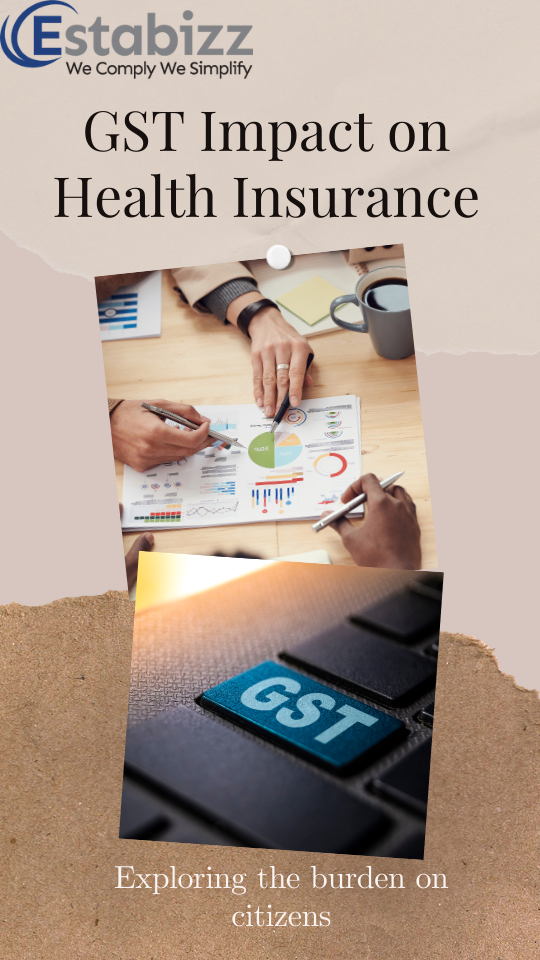“18% GST on Health and Life Insurance: A Burden on 45 Crore Indians”

In a recent move that has caught the attention of citizens across India, Derek O’Brien, a leader from the Trinamool Congress (TMC) and Rajya Sabha MP, has reached out to Finance Minister Nirmala Sitharaman with a pressing request. O’Brien is advocating for the withdrawal of the 18% Goods and Services Tax (GST) imposed on health and life insurance premiums. This call to action was made in anticipation of the GST council meeting scheduled for September 9, highlighting a significant concern for millions.
Urgent Appeal for Tax Relief
On August 24, Derek O’Brien made his case in a letter to Sitharaman, delineating the financial strain the 18% GST places on a vast majority of Indians. With 45 crore citizens affected, primarily the middle class, the imposition of such a steep tax rate on health and life insurance premiums is seen as counterproductive. O’Brien emphasized, “These insurance schemes provide financial security during times of illness, accident, or untimely death. It is our collective responsibility to ensure that all sections of the society can afford this crucial social security net.”
The concern is that the current GST rate could discourage many from opting into these essential insurance schemes. Existing policyholders might also find it unsustainable to continue their plans, leaving them vulnerable in times of medical or personal crises. “Levying a high GST rate on health and life insurance can have severe repercussions for the public, particularly the middle class, who have already been severely impacted,” O’Brien remarked.
Support Across the Political Spectrum
The issue has unified voices across the political landscape, with the All-India Trinamool Party initially raising this point in Parliament on July 29. Subsequently, MPs from 20 opposition parties echoed the sentiment, underlining the widespread concern over the matter. The push for reevaluating the GST on insurance premiums even garnered support from within the government ranks, with Union Minister Nitin Gadkari acknowledging the adverse impacts of such a tax scheme on the growth of the insurance sector and the public’s welfare.
Highlighting the collective opposition to the policy, O’Brien referenced the actions of 350 MPs from varied political parties who protested against this in Parliament on August 6. Even West Bengal’s Chief Minister, Mamata Banerjee, voiced her concerns, advocating for a rollback of the GST on health and insurance premiums in a letter dated August 2.

Recommendations for a Sustainable Future
Reiterating the recommendations of the 66th report of the Standing Committee on Finance, O’Brien argued for a more accessible insurance sector. The committee suggested that health insurance products, especially retail policies for senior citizens and microinsurance policies, should have reduced GST rates to become more affordable to the wider population.
In conclusion, Derek O’Brien’s letter to the Finance Minister is a clarion call to revisit and potentially repeal the 18% GST on health and life insurance premiums. Echoing the goals of the Insurance Regulatory and Development Authority of India (IRDAI) to achieve “Insurance for All” by 2047, O’Brien’s proposition not only seeks immediate relief for millions but also aims to align with the long-term vision of enhancing insurance accessibility and coverage across India. This situation underscores a significant moment for the country’s financial landscape, demanding thoughtful consideration and actionable solutions from all stakeholders involved.
As of now, all critical elements concerning the issue of “18% GST on Health and Life Insurance: A Burden on 45 Crore Indians” have been addressed comprehensively. This includes the advocacy efforts led by Derek O’Brien, the cross-party support in Parliament, the related recommendations from authoritative reports, and the broader implications for the Indian populace if the tax policy remains unchanged.
Future Steps and Recommendations
Moving forward, it is crucial for policymakers, stakeholders, and the GST council to consider the following actionable steps to address the concerns outlined:
Reevaluate the GST Framework
- Assessment of Impact: Conduct thorough assessments to understand the full impact of the 18% GST on different segments of the population, particularly focusing on the economic strain on middle and lower-income families.
- Consider Graduated Rates: Explore the feasibility of implementing graduated GST rates for health and life insurance premiums based on the policyholder’s income levels.
Enhance Public Awareness and Inclusivity
- Increase Awareness Campaigns: Launch comprehensive public awareness campaigns to educate citizens on the importance of health and life insurance, especially highlighting any changes in the tax structure.
- Inclusive Policy Design: Ensure that insurance policies are designed to be inclusive and cater to the needs of all sections of society, particularly vulnerable groups.
Legislative and Regulatory Adjustments
- Legislative Review: Encourage regular legislative reviews of insurance-related taxes to adapt to the socio-economic changes and health landscapes of India.
- Streamline Regulatory Processes: Simplify the regulatory processes for insurance to encourage more players in the market, which could lead to more competitive pricing and easier access for consumers.
Strengthening Industry and Government Collaboration
- Stakeholder Engagement: Foster a stronger collaboration between the insurance industry, government bodies, and civil society to create a resilient framework that supports sustainable insurance practices.
- Innovation in Insurance Products: Encourage innovation in creating insurance products that are affordable, offer substantial coverage, and are easy to understand for the general populace.
By considering these initiatives, the concern of “18% GST on Health and Life Insurance: A Burden on 45 Crore Indians” can be addressed more effectively. It is imperative for the government to take swift and decisive action, reflecting the needs and welfare of the population thus ensuring a healthier and more secure future for all Indians.
Estabizz Fintech Pvt Ltd remains committed to monitoring these developments closely, advocating for policies that support financial security and well-being, and providing insights that aid in the understanding of such crucial economic and social issues.
Estabizz Fintech compiled the material in this article using the most recent Acts, Rules, Circulars, Notifications, Provisions, Press Releases, and material applicable at the time. They ensured the completeness and correctness of the material through due diligence. When using this material, users must consult the relevant, applicable legislation. The given data may change without prior notice and does not constitute professional advice. Estabizz Fintech disclaims all liability for any results from the use of this material.





